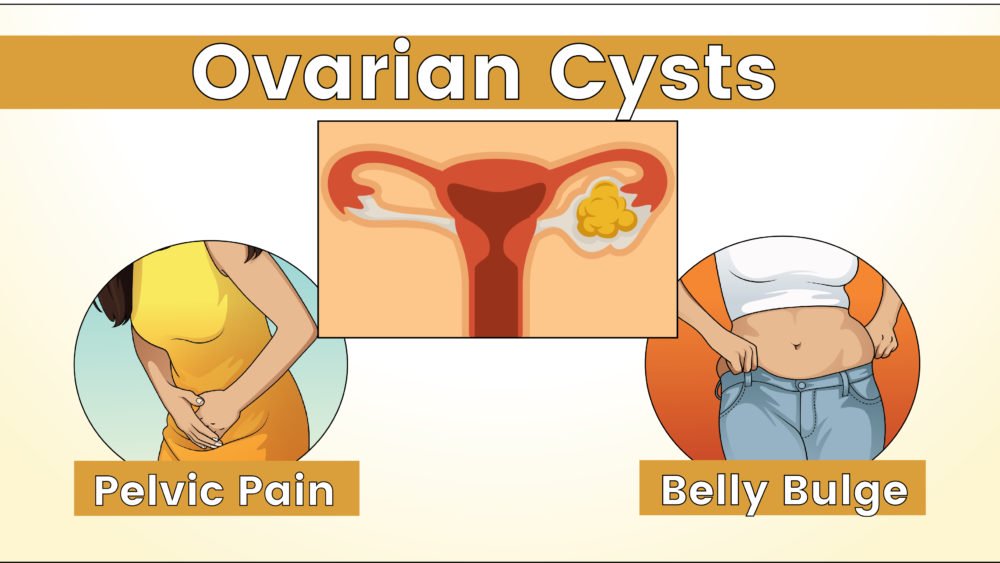Ovarian Cyst Removal in Lausanne
Search and Compare the Best Clinics and Doctors at the Lowest Prices for Ovarian Cyst Removal in Lausanne

Find the best clinics for Ovarian Cyst Removal in Lausanne
No pricing info available
Ukraine offers the best prices Worldwide
Price: $ 714
From 21 verified reviews
Doriana RIVA, 10 September 2020
A huge thank you to the healthcare team who took care of me urgently on April 22, 2020. The welcome at the front desk, the anesthesia team, the assistants, the nurses in the operating room and the recovery room were so sweet and very attentive.I will never forget that time spent with you. Good luck to everyone, e.D. Riva
- Home
- Switzerland
- Lausanne
WHY US?
At Medijump, we're making medical easy. You can search, compare, discuss, and book your medical all in one place. We open the door to the best medical providers worldwide, saving you time and energy along the way, and it's all for FREE, no hidden fees, and no price markups guaranteed. So what are you waiting for?

Free

Best Price

Widest Selection

Risk-Free
What you need to know about Ovarian Cyst Removal in Lausanne

Ovarian cyst removal is a surgical procedure performed on ovarian cysts – fluid-filled sacs that grow in or on the ovaries. It is typically performed when the cyst is causing such symptoms as Bloating and Pelvic pain. Ovarian cysts normally develop as a result of the menstrual cycle and other types of cysts are less common. The procedure can be done through laparoscopic surgery (minimally invasive), but in some cases, it is done through an open surgery when a larger cut is required.
What does a Ovarian Cyst Removal Procedure Involve?
Both open surgery and laparoscopic surgery are performed under general anesthetic. With laparoscopic surgery, your surgeon will make small incisions in your abdomen to insert a small instrument into your abdomen to remove the cysts. With open surgery, your doctor makes a large incision in your abdomen; they may also remove the ovaries and uterus if the cyst is cancerous.
How Long Should You Stay in Lausanne?
You may be required to stay in the hospital for one to two days. However, some patients are discharged on the same day of the surgery. Plan to stay in Lausanne for at least seven days for the initial recovery and to attend follow-up check-ups and for your surgeon to remove the stitches.
What's the Recovery Time for Ovarian Cyst Removal Procedures in Lausanne?
The recovery period after laparoscopic surgery is a lot shorter than open surgery, you may be able to get back to work after a week and return to your normal routine in 2 weeks. After open surgery, it may take up to 6 weeks until you can go back to your normal routine.
What sort of Aftercare is Required for Ovarian Cyst Removal Procedures in Lausanne?
You are not allowed to do any strenuous exercises until you are fully recovered, but you should take several 10 to 15 minutes short walks in the first few days. Your surgeon will give you instructions that include diet and caring for your healing wounds.
What's the Success Rate of Ovarian Cyst Removal Procedures in Lausanne?
The success rate for ovarian cyst removal is known to be high. However, you need to be aware of the risks and side effects of the procedure, including swelling, infection, blood clots, and damage to other organs. Laparoscopic surgery is known to be a lot safer and has fewer complications.
Are there Alternatives to Ovarian Cyst Removal Procedures in Lausanne?
If the ovarian cyst is not causing any symptoms, your doctor may advise you to simply keep an eye on it instead of having any treatment. You may be asked to have a regular ultrasound scan to check if the cyst goes away or changes in size.
What Should You Expect Before and After the Procedure
Having an ovarian cyst can cause pain and other symptoms. In some cases, the cyst can also be cancerous and dangerous. After an ovarian cyst removal, you may no longer feel the symptoms and your risk of cancer is reduced.
Whilst the information presented here has been accurately sourced and verified by a medical professional for its accuracy, it is still advised to consult with your doctor before pursuing a medical treatment at one of the listed medical providers
No Time?
Tell us what you're looking for and we'll reachout to the top clinics all at once
Enquire Now

Popular Procedures in Lausanne
Prices Start From $175

Prices Start From $260

Prices Start From $714

Recommended Medical Centers in Lausanne for Ovarian Cyst Removal

- Interpreter services
- Translation service
- Religious facilities
- Medical records transfer
- Medical travel insurance
- Health insurance coordination
- TV in the room
- Safe in the room
- Phone in the room
- Private rooms for patients available

- Interpreter services
- Translation service
- Religious facilities
- Medical records transfer
- Medical travel insurance
- Health insurance coordination
- TV in the room
- Safe in the room
- Phone in the room
- Private rooms for patients available

- Interpreter services
- Translation service
- Religious facilities
- Medical records transfer
- Medical travel insurance
- Health insurance coordination
- TV in the room
- Safe in the room
- Phone in the room
- Private rooms for patients available

- Interpreter services
- Translation service
- Religious facilities
- Medical records transfer
- Medical travel insurance
- Health insurance coordination
- TV in the room
- Safe in the room
- Phone in the room
- Private rooms for patients available

- Interpreter services
- Translation service
- Religious facilities
- Medical records transfer
- Medical travel insurance
- Health insurance coordination
- TV in the room
- Safe in the room
- Phone in the room
- Private rooms for patients available

- Interpreter services
- Translation service
- Religious facilities
- Medical records transfer
- Medical travel insurance
- Health insurance coordination
- TV in the room
- Safe in the room
- Phone in the room
- Private rooms for patients available

- Interpreter services
- Translation service
- Religious facilities
- Medical records transfer
- Medical travel insurance
- Health insurance coordination
- TV in the room
- Safe in the room
- Phone in the room
- Private rooms for patients available

- Interpreter services
- Translation service
- Religious facilities
- Medical records transfer
- Medical travel insurance
- Health insurance coordination
- TV in the room
- Safe in the room
- Phone in the room
- Private rooms for patients available

- Interpreter services
- Translation service
- Religious facilities
- Medical records transfer
- Medical travel insurance
- Health insurance coordination
- TV in the room
- Safe in the room
- Phone in the room
- Private rooms for patients available

- Interpreter services
- Translation service
- Religious facilities
- Medical records transfer
- Medical travel insurance
- Health insurance coordination
- TV in the room
- Safe in the room
- Phone in the room
- Private rooms for patients available
Ovarian Cyst Removal in and around Lausanne
Popular Searches
- Plastic Surgery in Thailand
- Dental Implants in Thailand
- Hair Transplant in Thailand
- Breast Augmentation Thailand
- Gastric Sleeve in Thailand
- Gender Reassignment Surgery in Thailand
- Laser Hair Removal in Bangkok
- Botox in Bangkok
- Dermatology in Bangkok
- Breast Augmentation in Bangkok
- Coolsculpting in Bangkok
- Veneers in Turkey
- Hair Transplant in Turkey
- Rhinoplasty in Turkey
- Stem Cell Therapy in Mexico
- Rhinoplasty in Mexico
- Liposuction in Mexico
- Coolsculpting in Tijuana
- Rhinoplasty in Korea
- Scar Removal in Korea
- Gastric Sleeve in Turkey
- Bone Marrow Transplant in India
- Invisalign in Malaysia
- Plastic Surgery in the Dominican Republic
- Tummy Tuck in the Dominican Republic
- Plastic and Cosmetic Surgery in Poland
- Rhinoplasty in Poland
- Hair Implant in Poland
- Dental Implants in Poland
- IVF in Turkey
